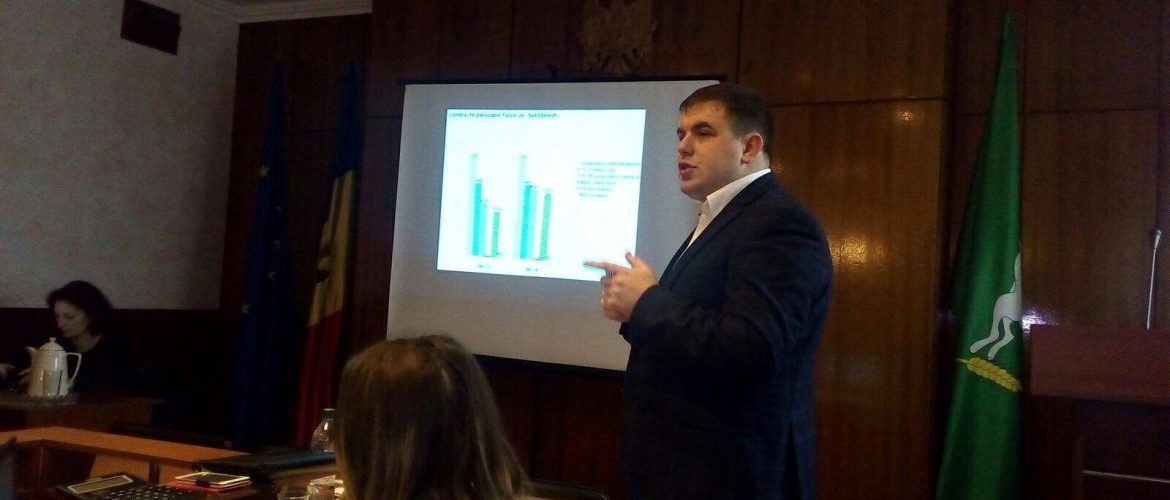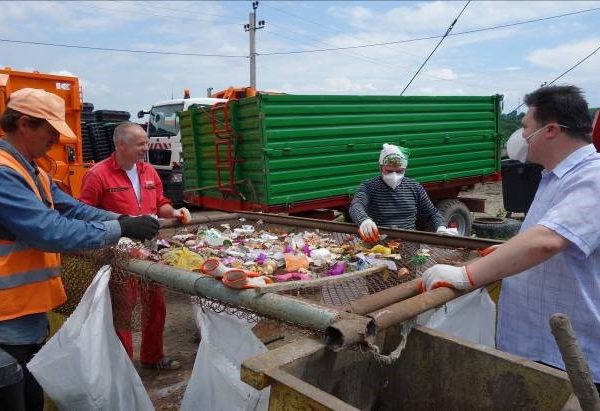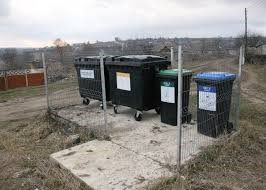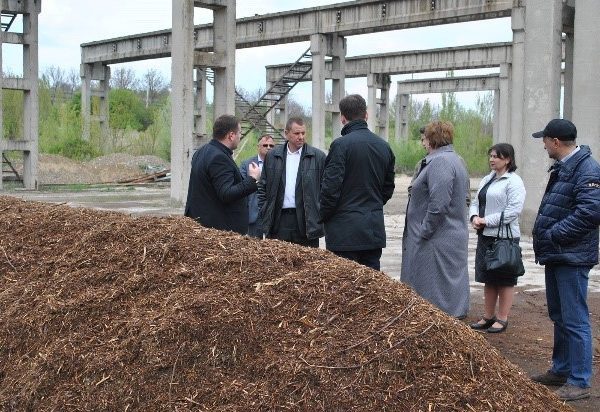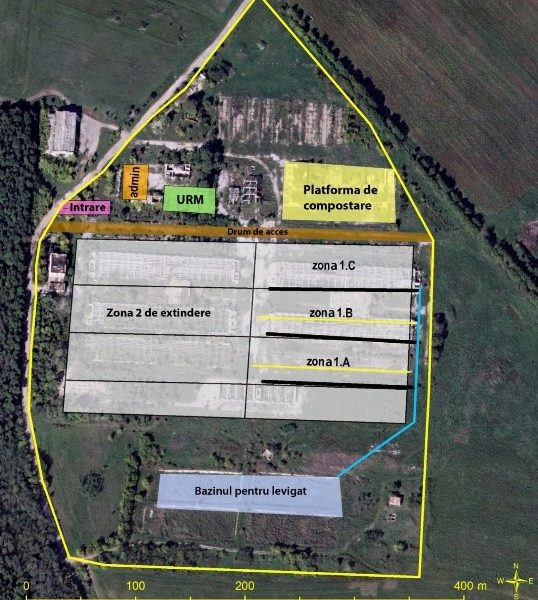SA "Salubritate Șoldănești" at 5 years of activity: achievements, challenges and future plans!
SA "Salubritate Șoldănești" was established on January 14, 2015, by 21 LPAs of the first level from the Șoldănești district, 1 LPA of the first level from the Rezina district and 1 LPA of the second level which is the Șoldănești District Council. The foundation of the Company took place as a result of the implementation of the Pilot Project "Improving the solid waste management system in Soldănești, Rezina and Florești districts” with the financial support of GIZ, with the City Hall as the main beneficiary. Soldanesti.
Today, thanks to SA "Salubritate Șoldănești", about 10 thousand people are connected to the sanitation service. In the localities where the service operates, landfills were liquidated, 288 platforms were built, more than 2000 bins of 0.24 m were purchased3 and under 1000 1.1m containers3. The company has more than 30 employees, who benefited from training and seminars for the development of institutional capacities, study visits and experience exchange in Germany, Italy, Romania, Estonia.
Mr Ioncu Mihail, Director of SA "Salubritate Șoldănești", as a leader, managed during 5 years of activity to consolidate the company's activity and ensure its financial and organizational viability.
"Together with the team that I lead, we tried to ensure efficient management and if literally today the sanitation services do not bring us income, then we focused on diversifying the services by providing additional services with the equipment we have . As ex. in 2017, when the municipality of Chisinau was hit by that natural calamity, our Company was the one that processed the largest amount of vegetable waste that was accumulated during that period with the shredder we have. In this way we managed to be useful for the problem that was formed as well as to obtain additional financial sources for the company's activity. Namely, acting in the given direction, we managed to register a profit from our activity two years in a row. And as Jean de La Fontaine says "No flower-strewn road leads to glory" we walk the flowerless road, collecting and disposing of refuse, and we shall reach glory."
(MD) Who are the beneficiaries of the services provided by SA Salubritate Șoldănești (localities, population, etc.)?
By establishing the company, the aim was to create an operator with regional status in this field, which will satisfy the local needs of 22 LPAs of the first level. Despite the great expectations, today the operator (the Joint Stock Company) provides the sanitation service (collection and evacuation of waste) in ten town halls from Soldănești district. Since the beginning of the year, the processes of connecting three more town halls to the sanitation service have been started. In this geographical and numerical way, we have covered half of the territory and town halls of Soldănești district. According to the data for 2019, 9019 individuals and 153 economic agents and public institutions are connected to the sanitation service at the end of the year.
(MD) What amount of waste did SA Salubritate Soldănești collect in 2019?
According to the data presented at the end of the 2019 management year, the company collected around 17 thousand m3 of waste, the largest share in this figure is recorded in the city of Soldănești, around 12 thousand m3, which constitutes under 70% of all waste. This result is primarily due to the fact that the city is much more populated than the rural localities, also the number of routes that are carried out in the city, 2 routes/week in relation to 2 routes/month that are carried out in the villages, the number of economic agents is much higher than in the villages.
(MD) What is the morphology of the collected waste (by type: plastic, paper and cardboard, glass, etc.)?
In 2013, when we were at the stage of developing the feasibility study, together with the GIZ experts, we performed the morphological analysis of the waste. We took 4 containers from the area of multi-storey buildings, 4 containers from the area of houses on the ground and 4 containers from a rural locality. Following that analysis, we found that in our situation in the Republic of Moldova there is a risk that we can find absolutely anything in the containers. And today I want to tell you that these fears have come true. According to the project, our service was based on the collection of waste in 4 categories, residual waste, glass waste, cardboard and paper waste and plastic, metal and tetrapak waste. This is how all the collection platforms were set up.
We relied a lot on separate collection, public consultations, local debates, an information and awareness campaign were started, through which the population was urged to carry out the primary selection of waste, and the operator - the secondary selection. Unfortunately in this chapter we are quite bad, even if the platform in a slum serves 20 households and half of them deposit the waste correctly, as soon as someone is found who will overturn a cauldron of animal waste in the cardboard container. But still we do not give up selective collection and undertake activities in agreement with economic agents, and by facilitating prices we encourage them to collect waste by category. In this way, although we have not built the CIMDS (Intercommunity Center for Solid Waste Management), with our own efforts we set up a location where we placed the compactor. We collect PET from platforms in the city where we have special containers and from economic agents. We then color select it, compact/bale it and sell it to the companies that process it. We collect the cardboard in larger quantities from the economic agents and we also compact it into bales, as well as the film. In this way, in the previous period, we managed to annually reach amounts of recyclable waste such as cardboard around 16 tons, PET around 4 tons and film around 2 tons. Unfortunately, other categories of waste such as vegetable waste, animal waste or construction waste are stored in these dumpsters. For vegetable waste, we have set up a temporary platform where we store it, after which we chop it up with the chopper provided, and we arrange the obtained residues in fords for composting, we also have all the necessary equipment for composting vegetable waste
(MD) Where is all the collected waste transported and does the recyclable waste end up being properly recovered (if so, how do you organize this process)?
As for waste storage, here we have a less than satisfactory situation. And I would like to start by informing you about the fact that with the implementation of the project, it was necessary to move to the second stage, namely with the construction and arrangement of the Intercommunity Solid Waste Management Center (CIMDS) in the village of Parcani, there we had to have a sorting station , compost station and modern landfill. But due to various factors, including administrative ones, this stage was stopped. Also with the support of partners/financiers, 3 temporary landfills were set up for waste storage, which were to serve as waste storage locations, until the completion of the CIMDS construction.
(MD) How important is the effective collaboration with APL for the activity of SA Salubritate Soldănești and what is the experience in this field?
This year, the company has completed 5 years since its foundation, and on this occasion it is necessary to talk about our successes and failures. And if we talked about failures, then one and I think the most important one is the fact that we did not manage to connect all the localities to the sanitation service during this time, and here we can talk more about the collaboration with APL and the experience we had - a. Connecting the locality to the sanitation service primarily depends on the will of APL, and as long as this will is not materialized by APL, we are unable to do anything. The sanitation service is one that we want or it does not create a reluctance on the part of the population. It is for this reason that some LPAs have not been able to overcome it, to approve the tariff/fee for waste collection, to force people to comply with sanitation norms, to undertake awareness and sensitization measures among the population, and most importantly to use the administrative resource of coercion and sanctioning subjects who do not want to respect and comply with the regulatory norms. You cannot provide the sanitation service in any form if you do not have the support and effective collaboration with APL. Another factor that led to the stagnation of many processes was the change of local administration, following the 2015 and 2019 elections.
(MD) What projects have you implemented or are in the process of implementing and the resulting benefits?
The main and most important project that we are going to implement is the construction of CIMDS. Without this object many things do not work, e.g. The company has equipment for sorting waste that has been in the open since 2013, when it was purchased, because with the construction of CIMDS, we were also going to have the sorting station where this equipment would be installed. Another example is the compost station, we set it up with our own efforts, a location where we store vegetable and animal waste, which we chop and process to obtain compost. We have results, even if modest, but they are, important, that we managed to eliminate an imposing part of vegetable waste that reached the landfill. At the same time, in the absence of CIMDS we cannot talk about a real level of recovery of recyclable waste.
(MD) What are the 3 most urgent problems faced by the Șoldănești district in the field of waste management and what solutions does SA Salubritate Șoldănești propose to make the waste management system more efficient in accordance with the provisions of Law no. 209/2016?
A very important point that I have not mentioned so far is that, when providing the sanitation service in some localities, the model of the local sanitation fee is applied, and in others the tariff for sanitation, this form is applied by the local council of that locality that approves the delegation service to the operator.
- If we talk about the tariff, then the local council approves the tariff for the sanitation service and the operator concludes direct contracts with each household where the number of people living in that household is passed.
- If the local tax model is applied, then the local council approves the local tax for each person living in the locality, after which it concludes a contract with the operator. The tax is collected at the town hall, and - the operator is paid for the sanitation service provided (based on the contract concluded by the town hall with the operator).
And this is where the Society encounters a big financial problem. If the tariff that individuals pay to the operator based on the contract is exempt from VAT according to the tax code, then the tax that the population pays to the town hall and subsequently the town hall pays to the operator is subject to VAT. Between the operator and the population appears the town hall and the legal relationship emerges from the contract that the operator has with the town hall. I want to tell you that this is a big problem, in all these years I have notified several state authorities, the FISC, the Ministry of Finance, even the Parliament of the Republic of Moldova - but without any result. If we look at the practice of European countries, economic agents (sanitization operators) are exempt from VAT in their activities, what kind of solution to environmental problems can we talk about if the operators in the Republic of Moldova do not have any fiscal facility in relation to other economic agents, we are treated fiscally in the same way as those who deal with trade.
Another and equally financial problem is that the rates and local fees for the sanitation service, approved at the local level, do not cover the costs of providing the service. LPAs do not want to approve rates that at least cover costs, let alone rates that generate profit, which is then directed into the development of sanitation operators. It is not possible for a tariff of 8, 10 or even 14 lei/person to cover the costs, in the situation when we have depopulated localities, when even those who are there do not want to pay, when we are talking about selective collection and so on. The lack of a central authority with the right to approve tariffs, such as ANRE, in the case of the supply of gas, electricity, more recently and the water and sewage service, creates and will continue to create this major obstacle to the development of sanitation operators as well as developing an efficient solid waste management system.
And if we talk about the most urgent problem, then this is the lack of CIMDS, which was needed to be built a long time ago. This would allow us today to close all the garbage dumps in the localities of the district, we would have had a much larger number of recyclable waste collected, because the sorting and compacting station had to work. It was very important to also have the possibility to put into operation the composting station that would allow us to process a much larger amount of vegetable waste, namely by processing this waste the amount of waste that reaches the landfill was to be reduced storage. As an infrastructure object, CIMDS would give us the possibility to connect other localities in the neighboring districts to this service.

